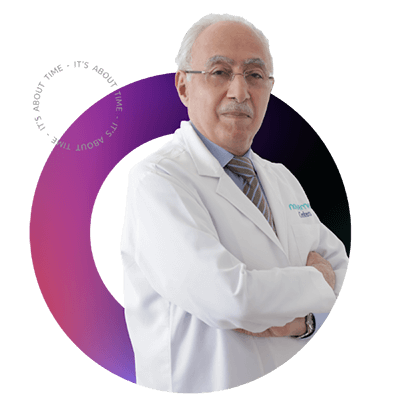Overview
Adenoids are glands located in the upper part of the throat. They are part of the immune system that helps defend the body from infections that enter through the mouth and nose. However, these glands may swell when fighting infections and stay enlarged even after the infection is gone.
Enlarged adenoid is a common problem among children that makes it difficult to breathe properly. Adenoids usually begin to shrink around the age of 5 or 7 and are completely gone by adolescence. Adenoid removal is most common in children; however, adults may require an adenoidectomy if they continue to experience adenoid problems or there is a risk of a tumor on the adenoids.
What are the symptoms of enlarged adenoids?
Common symptoms of having enlarged adenoids include:
- Difficulty breathing through the nose
- Snoring or sleep apnea
- Breathing loudly or breathing through the mouth frequently
- Recurring nose or ear infections
If your child is having a problem with their tonsils, the doctor will most likely recommend having a tonsillectomy (tonsil removal) at the same time as your adenoids are removed.
What happens during the consultation?
During the consultation, our ENT specialist will review your child’s medical history and present symptoms, examine their ears, nose, and check the size of the adenoids using an endoscope (a long tube with a light at its end).
The doctor will determine the suitable treatment depending on the cause of the problem. If the adenoids are enlarged due to a bacterial infection, the doctor may prescribe a nasal spray or an antibiotic to help reduce swelling. For more severe cases of enlarged adenoids, they will recommend an adenoidectomy to remove the adenoids.
Our ENT doctor in Dubai will help you improve your child’s breathing and sleeping problems using the most advanced, minimally invasive treatments, and if surgery is required, they will provide you with pre and post-surgery instruction to ensure optimal results and smooth recovery for your child.
How is an adenoidectomy performed?
The procedure is usually performed under general anesthesia and takes around 30 minutes. It doesn’t involve making incisions on the skin as the surgeon performs it through the mouth.
The surgeon will use a retractor to open the mouth wide and access the adenoids through the back of the throat. The adenoids are removed using specialized tools and the incisions are closed with dissolvable sutures.
What to expect after surgery?
Most patients can go home the same day as the procedure, and their nasal blockage and snoring will improve after 1-2 weeks. Young children who have a high risk of contracting an infection or having respiratory problems may need to spend the night in the hospital.
After an adenoidectomy, your child will make a full recovery and enjoy a healthier life with fewer or no breathing and ear problems. It is expected to have some loud breathing and snoring for up to two weeks after surgery, but this will stop after the swelling alleviate. Patients may also have low-grade fevers for several days. If the fever persists despite treatment, they should contact the doctor. They may experience discomfort in the throat, nose, and ears for a few days, but it is usually minor and only lasts a few days. Our doctor will prescribe over-the-counter pain medication to ease any pain.
Following surgery, patients should drink plenty of fluids to avoid dehydration, eat soft foods to soothe their sore throat, and get plenty of rest at home.
Schedule your appointment at Novomed today!
If you or your child have enlarged adenoids that affect their breathing and ability to perform your school and daily activities, make an appointment with one of our experienced ENT specialists in Dubai to learn more about the treatment options.
Book your consultation today by calling toll-free 8006686, filling out the booking form or clicking the live chat icon at the bottom of the screen.


























